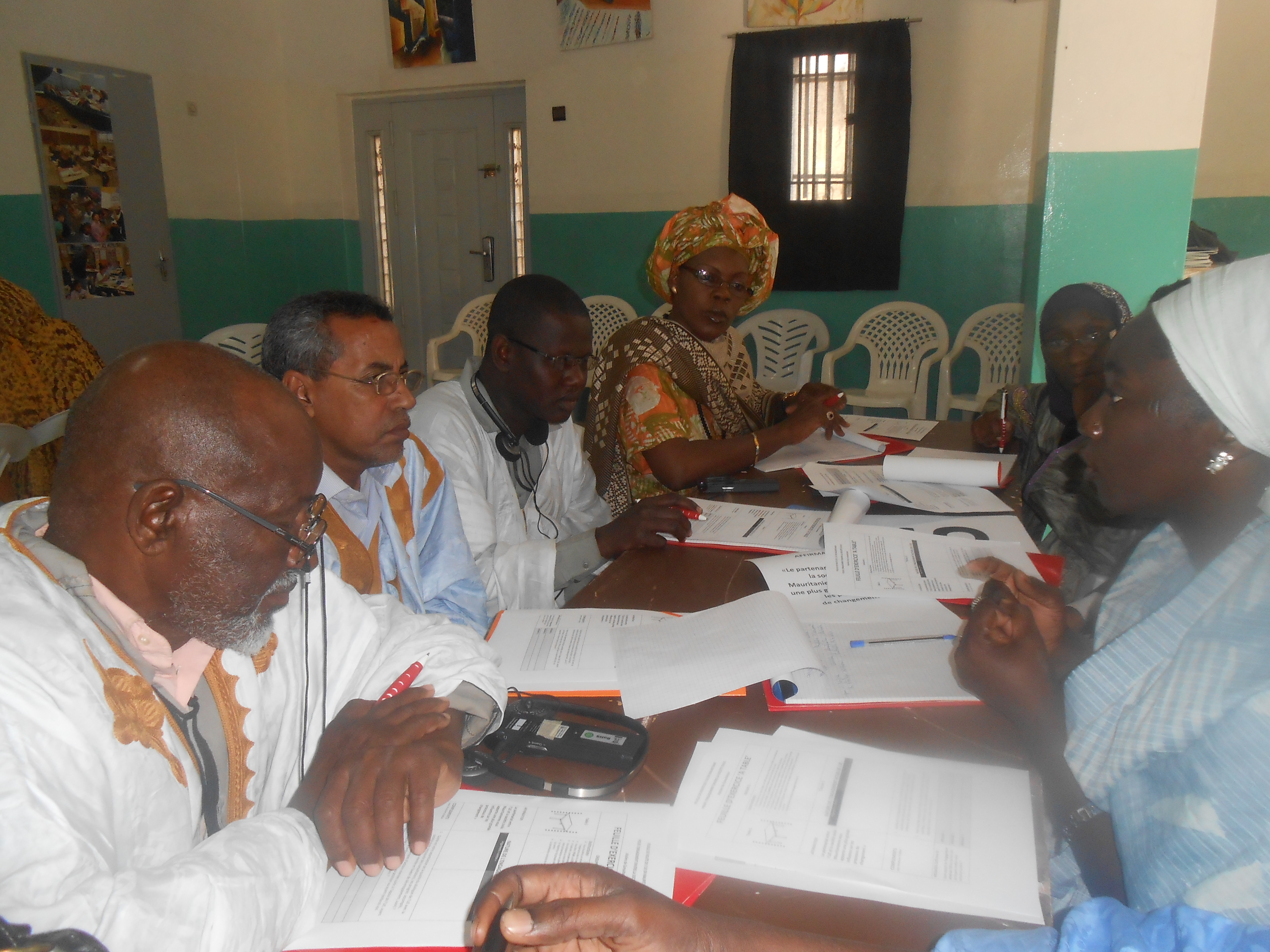Stories from the field - Work in progress in Mauritania
Discussion details
“It is up to Civil Society Organisations to organise ourselves around an ideal or a theme that will give us credibility” and“ Civil Society in Mauritania does not manage to achieve the critical mass in order to represent the voice of the population.” Those were two of the many statements that were discussed during three workshops organised in Mauritania during the month of March.
In order to contextualise the three priorities of the ‘Communication 2012 Roots of democracy and sustainable development: Europe’s engagement with Civil Society’ the Roadmap Support Facility organised three participative SWOT workshops plus a number of regional consultations in Mauritania. More than 110 representatives of CSO’s from all over the country participated in debates around the three priorities being; 1. To enhance efforts to promote a conducive environment for CSO’s, 2. To promote participation of CSO’s in domestic policies and 3. To increase local CSO’s capacity. For each priority a number of statements were provided. Participants were encouraged to choose sides, for or against the statement, and then to discuss the development perspectives of civil society in Mauritania and the required engagement of the EU.
One of the many findings was that CSO’s which are not based in the capital Nouakchott often are excluded from the process. Amongst others this is also due to the fact that most CSOs are connected to International CSOs who are concentrated in the capital, that CSOs coordination and representation mechanisms are weak and sometimes contested and that internet is often still not mainstream outside the capital. CSO representatives also indicated a stronger political dialogue between the EU and the government is needed to support an enabling environment in the country.
The three workshops gave many other insights, strong points and weaknesses about the role of Civil Society in Mauritania and the engagement of the EU. All in all, it provided more than enough input for drafting chapter one and two of the Roadmap. As a follow up and to finalise the Roadmap, more regional workshops were held during the first two weeks of April in Nouakchott, Nouadhibou, Kaédi, Boghé, Aïoun and Atar to decide upon the Roadmaps priorities and indicators.
During those workshops, in which a total of 372 CSO’s were consulted, participants indicated that ‘understanding the role, rights and duties of civil society’ still requires a lot of attention and should be considered as a condition to play their role effectively. The final Roadmap for Mauritania is expected to be concluded during the coming weeks and will be presented during the Europe Week in May.
Tine Veldkamp, expert of the Roadmap Support Facility on lessons learned
From the process in Mauritania we can draw a number of lessons. The first one is what I would call ‘Together for better.’ This is the visible engagement of the Delegation and Cooperation agencies of the Member States in terms of presence, task division, combining their efforts and insights and their openness to receive constructive feedback about the EUs current engagement. This made the elaboration of the road map a worthwhile process and so much more than a document. The second lesson is that by putting an emphasis during the consultations on civil society as a whole, this has been a very valuable way to understand the CSO arena and the wider context in which civil society in Mauritania operates.
Another lesson is what I would call, ‘Remove road blocks.’ In Mauritania where people do not share a common language, cross cultural communication and overcoming language barriers are significant challenges to effectively elaborate a road map for strategic engagement with civil society. Facilitating simultaneous interpretation opened the door to an inclusive dialogue. And the last lesson is that despite the EU’s broad definition of civil society, the concept of civil society means in practice something different to various cultures and in various contexts and determines what is within and what is beyond civil society’s current ability to change. Better tools may be required to identify CSOs operational boundaries and to elaborate strategies to open up concrete restrictions.

Log in with your EU Login account to post or comment on the platform.